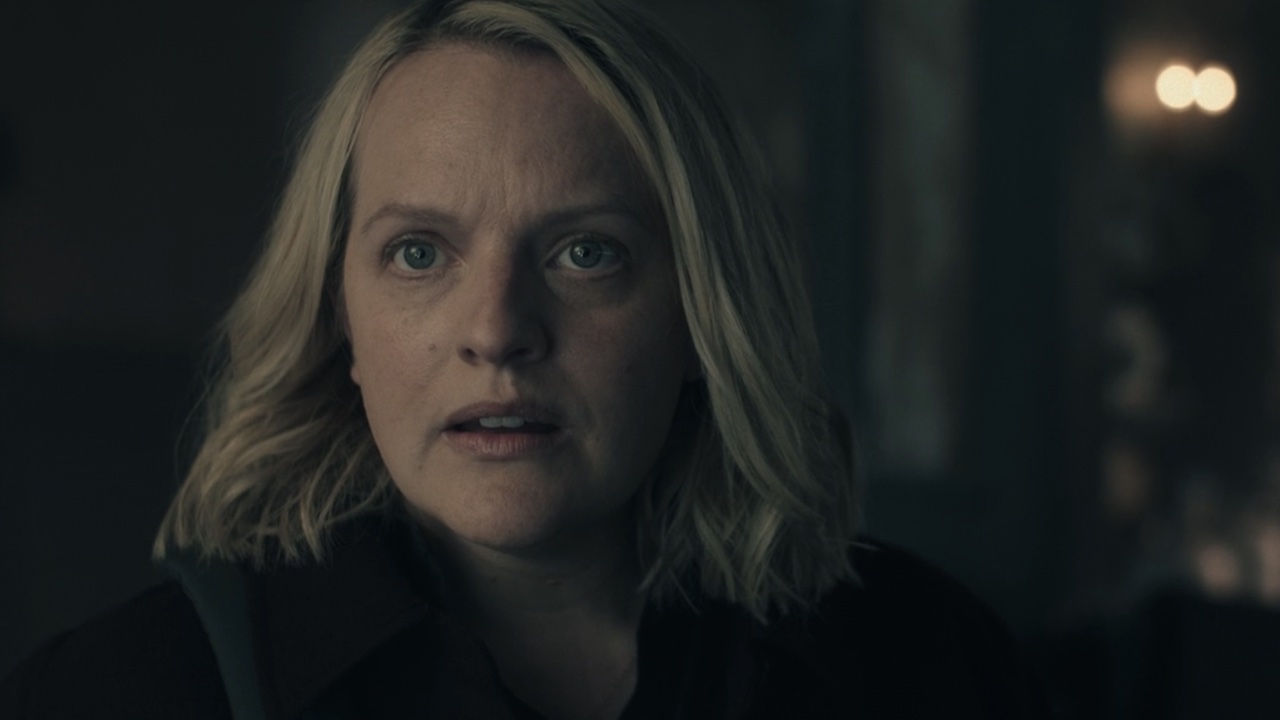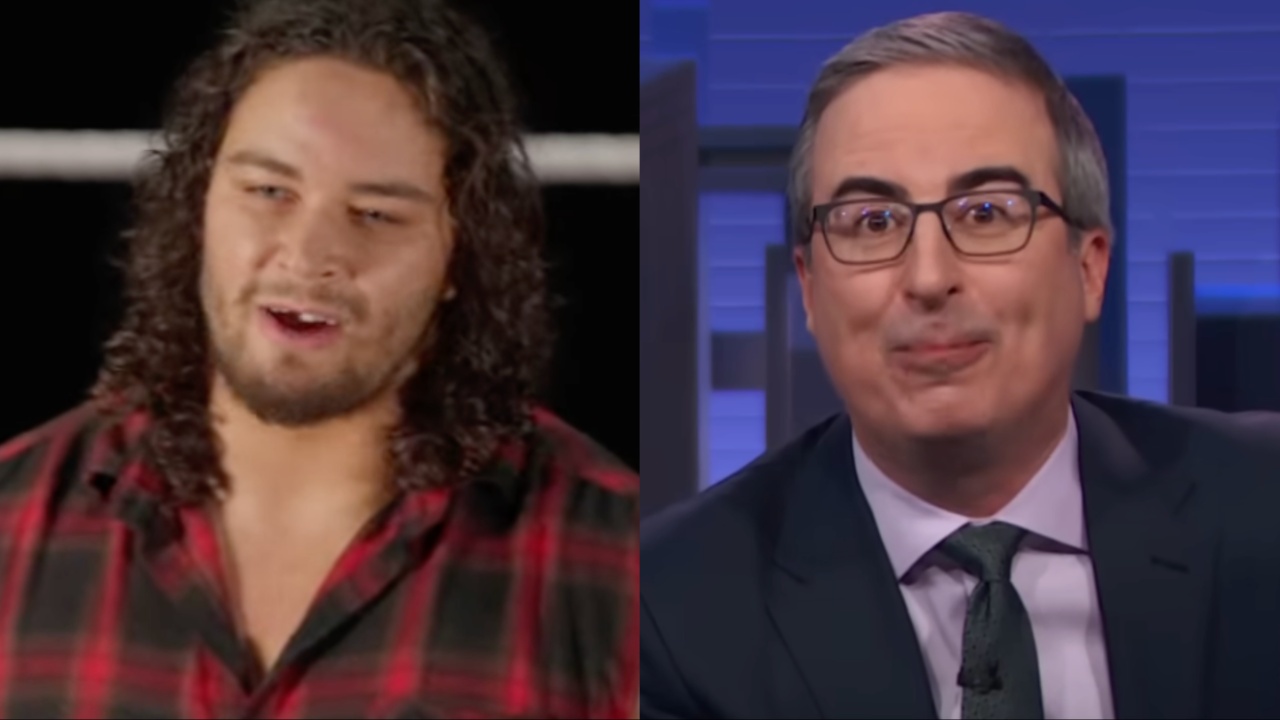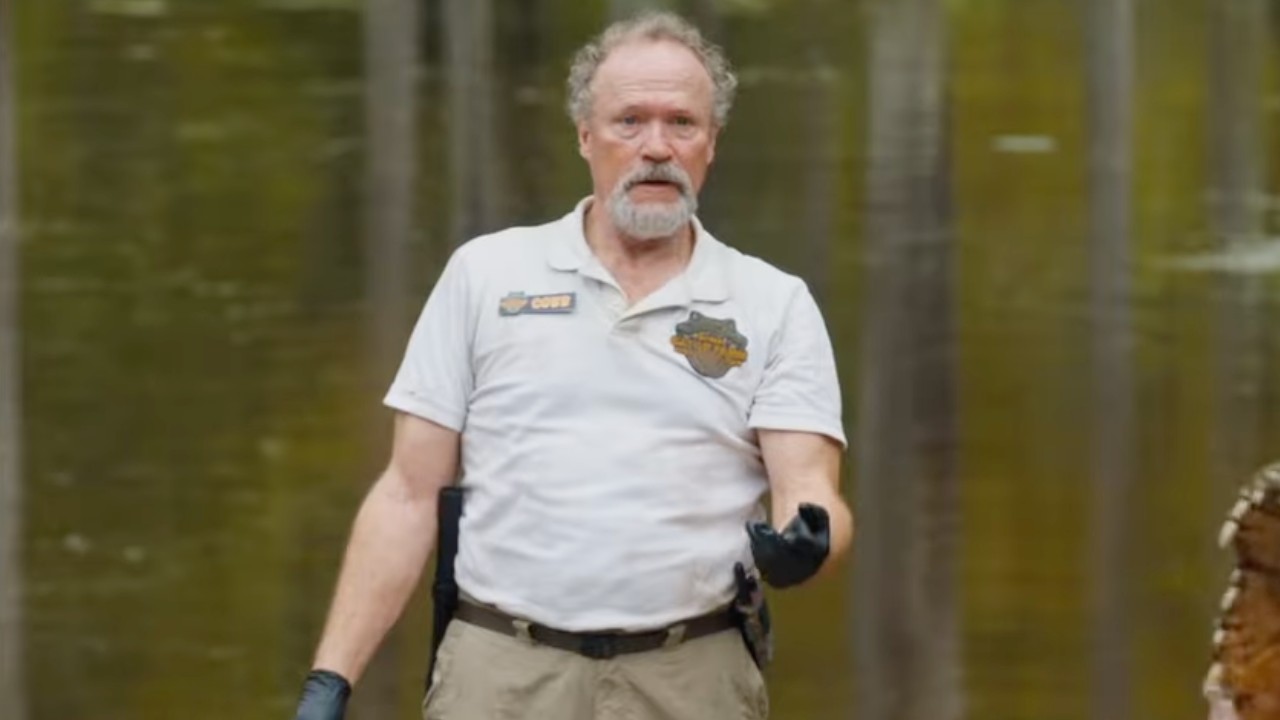What Was Finn Going To Say To Rey In Star Wars: The Rise Of Skywalker?

SPOILER WARNING: The following article contains spoilers for Star Wars: The Rise Of Skywalker. If you have not yet seen the film, continue at your own risk!
In the making of Star Wars: The Rise Of Skywalker, there was never any confusion about the film’s place in the legacy of the classic sci-fi franchise: it was always understood that the movie would be the final chapter in the Skywalker Saga. Obviously the universe will live on, but from the very beginning there was the idea that it would be the vehicle to say goodbye to the core group of characters. This was kept in mind for not only legacy leads Luke Skywalker, Leia Organa, Han Solo, and Anakin Skywalker, but also new generation heroes Rey, Finn, and Poe Dameron.
This in mind, one aspect of the blockbuster is quite baffling. In the first act, Finn prepares to make some kind of big confession to Rey as the film’s protagonists are sinking into a quicksand-like pit while on a mission. He gets cut off as he is swallowed up by the terrain quicker than expected, which is fine as far as adding a new element to the character’s arc in the story, but what’s tremendously odd is that the audience never actually learns what he was going to say. The subject is brought up later in the movie during a conversation between Finn and Poe, but never gets any real resolution.
In a vacuum it seems like it’s a taste of J.J. Abrams’ “mystery box” storytelling, opening up an intriguing aspect of the narrative that invites rampant speculation, but it’s a total misfit idea in the larger context of Star Wars: The Rise Of Skywalker, and really just translates as bad writing. Given the aforementioned sold idea that we won’t be seeing Finn and Rey on the big screen again, it only reads as unsatisfying, and more than anything it feels like it was an aspect of the film that Abrams and co-writer Chris Terrio simply forgot to wrap up.
One could make the argument that there’s nothing wrong with leaving in elements of ambiguity in a blockbuster finale, as there’s no better way to keep a fanbase active and engaged than through debate, but Finn’s would-be confession to Rey is broken in a way that doesn’t effectively let that kind of debate happen – especially when you factor in the commentary we’ve heard surrounding the subject in the days since Star Wars: The Rise Of Skywalker’s global release.
When speculating about the nature of Finn’s confession, there is one answer above all that immediately springs to mind: he wanted to admit to Rey that he is in love with her. It’s an idea that tracks when you consider his behavior throughout the Sequel Trilogy, including his persistent desire to hold her hand in Star Wars: The Force Awakens, and his willingness to abandon The Resistance in order to ensure her safety in Star Wars: The Last Jedi. Believing this does require you to totally ignore what was a budding relationship between Finn and Rose Tico, but Star Wars: The Rise Of Skywalker clearly had no issue with doing that regardless.
The problem, though, is that the reason the answer springs to mind immediately is because it’s a trope of the ancient variety. Cinema history has seen hundreds if not thousands of characters confess hidden love when they believe that their death is imminent. Having Finn play out this cliché is basic and boring.
CINEMABLEND NEWSLETTER
Your Daily Blend of Entertainment News
The good news for fans that dislike this theory is that John Boyega himself has shut it down. Taking to his personal Twitter account this weekend, the actor wrote a simple message to curious fans: “No... Finn wasn’t going to say I love you before sinking!” So that presumably takes it off the speculation table.
This is positive in the sense that it steers the film away from an overused story development, but it also makes the lack of resolution in Star Wars: The Rise Of Skywalker that much more confusing and frustrating. Ambiguity only works effectively when there are multiple reasonable possibilities at hand. Obvious as they may be, taking viable options away obfuscates everything, as flimsier ideas are brought to the forefront and the potential answers you’re left with are harder to believe and accept as canon.
Enter circulating reports about J.J. Abrams’ comments on the matter. According to one fan who claims to have overheard a conversation at an Academy screening, the writer/director is telling people that what Finn was going to say to Rey is that he believes that he is Force sensitive – a topic that is semi-raised later in the film when the former Stormtrooper is talking with Jannah about his decision to leave The First Order and a particular feeling that took over him.
But does that really make sense? The idea of an imminent death confession is that a character is meant to blurt out something that they previously couldn’t summon the courage to say in normal conversation. Do we really believe that Finn would have any kind of issue telling Rey that he believes he has his own special connection to the Force? There’s nothing in any of the movies that suggests the heroine would have any kind of negative reaction to that information. To the contrary, she probably would have loved hearing it, and would have imparted some of the wisdom she took from her lessons with Luke Skywalker.
Also, again, this is remarkably frustrating information to absorb post-film knowing that there’s a high likelihood that we may never see Finn on the big screen again. There are surely many, many fans who would have loved to see that aspect of the character explored, but instead it got totally buried the J.J. Abrams movie and was provided with zero real support.
Star Wars: The Rise of Skywalker is flawed in many ways, but Finn’s improperly handled and concluded confession to Rey stands out as particularly glaring. We can hope that the expanded universe material will eventually cover it, and potentially even mold it into something good, but as it stands it’s just an unfortunate bit of bad blockbuster storytelling.

Eric Eisenberg is the Assistant Managing Editor at CinemaBlend. After graduating Boston University and earning a bachelor’s degree in journalism, he took a part-time job as a staff writer for CinemaBlend, and after six months was offered the opportunity to move to Los Angeles and take on a newly created West Coast Editor position. Over a decade later, he's continuing to advance his interests and expertise. In addition to conducting filmmaker interviews and contributing to the news and feature content of the site, Eric also oversees the Movie Reviews section, writes the the weekend box office report (published Sundays), and is the site's resident Stephen King expert. He has two King-related columns.









